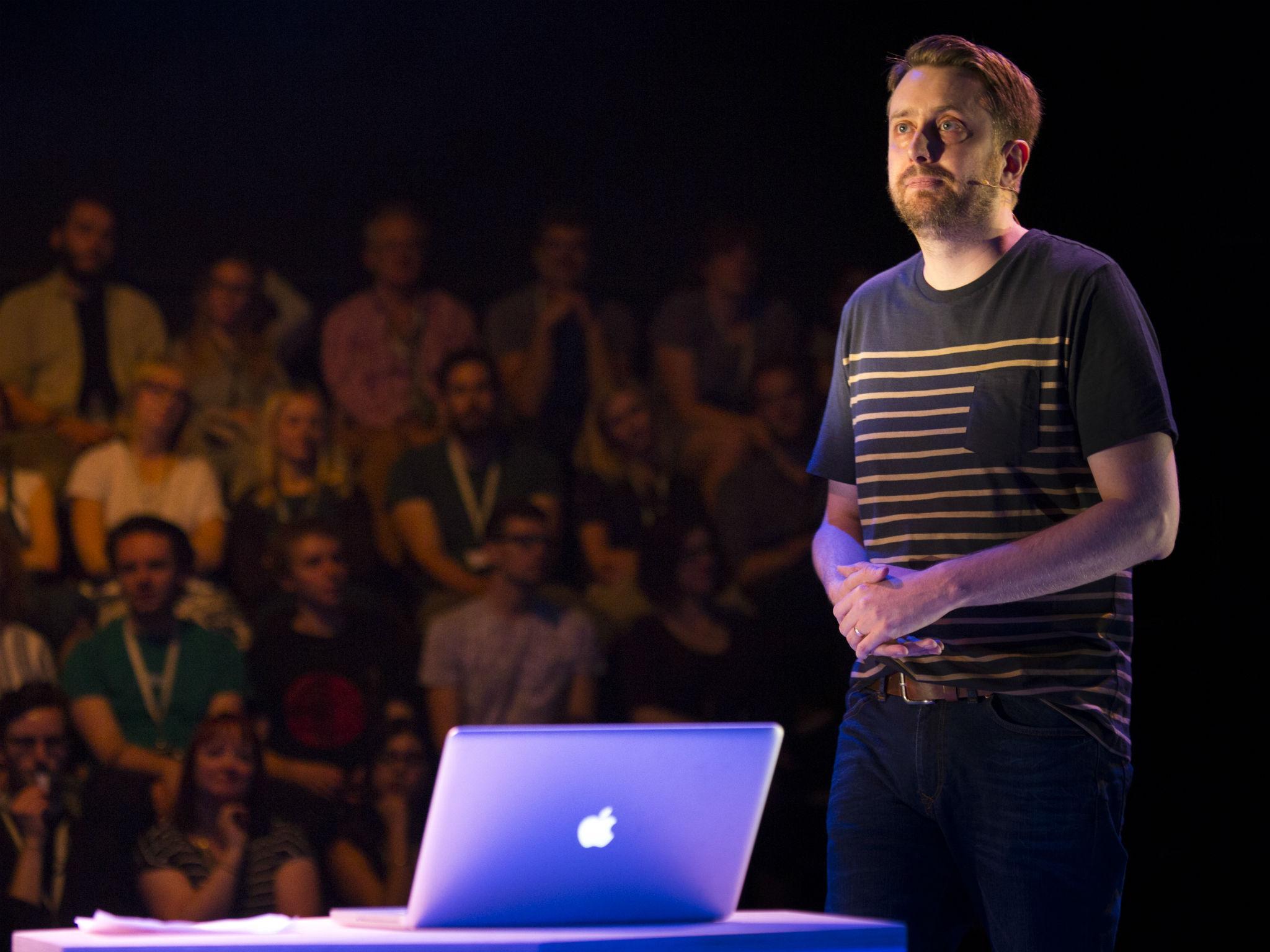The Majority, National Theatre, London, review: A thought-provoking play but not as revealing as one had hoped
This new play by Rob Drummond doesn't address enough of the specific problems posed for democracy by the Brexit vote and the election of Donald Trump

“My trouble is, I’m a man of no convictions. (Longish pause.) At least, I think I am.” So declares the hero of Christopher Hampton’s The Philanthropist. There’s no hiding behind that kind of rueful/boastful indecisiveness at this solo show about democracy, written and performed by Rob Drummond. The 90-minute piece, called The Majority, could be described as a shaggy dog story with a participatory element designed to point up the anomalies, contradictions and inconsistencies in majority verdicts. On the way in, you are issued with an electronic keypad and are invited to vote – on a deliberately simplified “yes or no” basis – to a series of propositions prompted by the narrative.
Drummond, a likeable Scot with an engaging manner, gets us in the mood by establishing a profile of the audience. You may not be surprised to hear that the press night crowd at the National, configured here in the round, were 91 per cent white, 90 per cent liberal, 47 per cent male, understood and accepted the voting system for the show (no refunds, we learned, if the whole piece had had to be aborted at this point), were against banning latecomers, and were, perhaps a tad illiberally, 46 per cent in favour of a mandatory vote. Seventy-nine per cent of us like to think we can make a difference and we are assured that our decisions will shape the course of the show.
It was his own failure to try to make a difference in the Scottish Referendum vote of 2014 that triggered the piece, Drummond reveals. He knew it was momentous; he “wanted to want” to vote; but somehow he never got round to it. His gesture of remorse was to throw himself on “the altar of the aftermath” in Glasgow’s George Square the next day. And there he met Eric in a chance, fateful encounter. Eric is a left-wing radical who lives in a remote coastal town north of Aberdeen and thinks that a bunch of neo-Nazis is taking over his local council. He’s also a bee keeper and the buzzing busyness of these creatures, seen in video in Jemima Robinson’s central honeycomb sculpture, stands as an obvious metaphor for social activity throughout David Overend’s uncluttered, clear, and well-focussed production.
Drummond is alert to the paranoid-nutcase strain in Eric, who once had his own party and spent time in jail. But he’s also drawn to his new friend’s passionate political commitment, so unlike the vaguely benevolent dithering he himself has gone in for. We witness his development into a keyboard warrior and a violent demonstrator. Not enough of the specific problems posed for democracy by the Brexit vote and the election of Donald Trump (events which occur during the time span of the story) are picked up and addressed. The central preoccupation is the extent to which a liberal individual can be expected to tolerate the views of opponents whom he or she believes to be categorically wrong. There are mountingly disturbing variations on the old “runaway train” dilemma beloved of utilitarian moral philosophy (divert it and save five people by killing one?). Suppose, he asks, that the train were heading for nobody but you could pull a lever and switch it to a track where it would kill a lone neo-Nazi. Last weekend’s events in Charlottesville, Virginia, pull you up with a terrible jolt during this final thought experiment.
The Majority plays games with the audience about how much of the story is to be believed and, in order to keep up a steady flow, the time we have to respond to each of the binary propositions feels very insufficient. As with the recent play Terror, where the audience was cast as the jury in a complex terrorism case, the more fascinating question of how and why we arrived at our verdict is scanted. The climactic problem on which we are asked to cast a vote – is abusing someone for holding an opinion a helpful thing to do? – is so vaguely worded as to diminish, for me, the impact of the wisdom the play has justly earned in proposing that we need to be better at disagreeing (because being in the right and being in the wrong feel remarkably similar states). A thought-provoking play but not as revealing as one had hoped.
Join our commenting forum
Join thought-provoking conversations, follow other Independent readers and see their replies
Comments